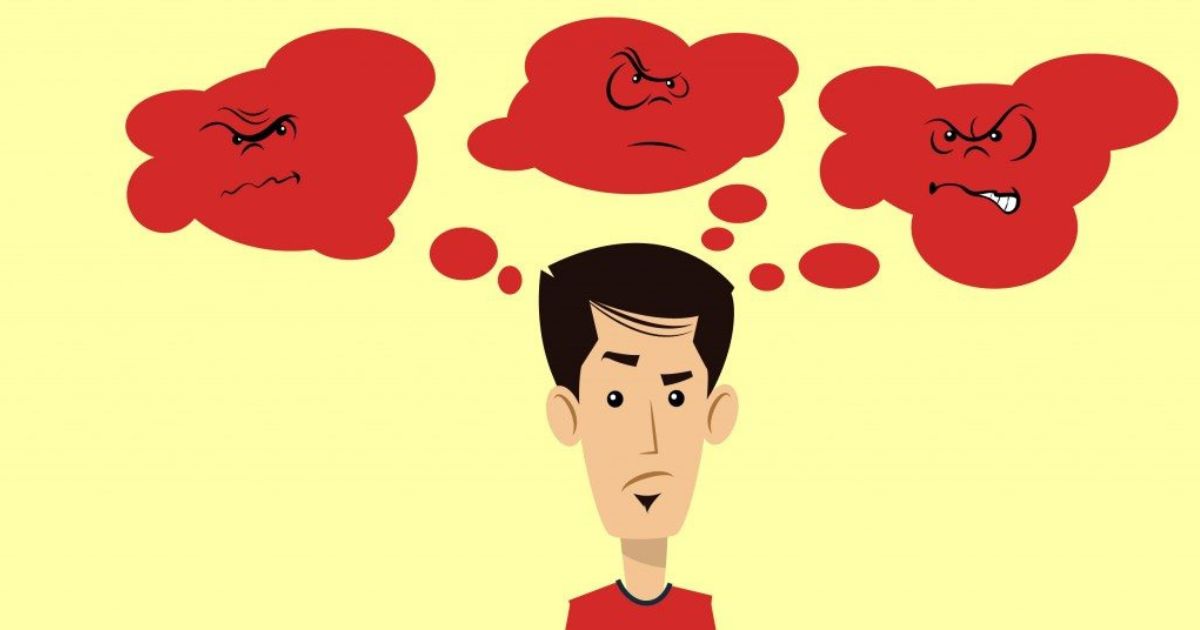A groundbreaking study conducted by scientists at the University of Cambridge challenges the conventional belief about suppressing negative thoughts and its impact on mental well-being. Contrary to prevalent clinical beliefs, the study indicates that the suppression of fearful thoughts does not lead to their intensified return.
In fact, participants who practiced thought suppression saw a reduction in the vividness of these thoughts and experienced improvements in their mental health. This research reexamines the long-held notion that attempting to suppress negative thoughts is detrimental to our mental health.
Study To Understand The Technique Of Suppressing Negative Thoughts
The study, carried out by researchers at the Medical Research Council (MRC) Cognition and Brain Sciences Unit, involved the training of 120 participants from around the world in the technique of suppressing thoughts related to negative events that caused them to worry.
The findings not only revealed a decrease in the vividness of these suppressed thoughts but also demonstrated positive impacts on the participants’ mental well-being.
Professor Michael Anderson, one of the leading researchers behind the study, noted the significance of these findings, challenging traditional psychotherapeutic ideas. He stated, “We’re all familiar with the Freudian idea that if we suppress our feelings or thoughts, then these thoughts remain in our unconscious, influencing our behavior and wellbeing perniciously.”
This traditional perspective suggests that suppressing thoughts only serves to bury them deeper in the unconscious, potentially leading to adverse effects on mental health.
Moreover, this study questions the more recent belief that suppressing thoughts is intrinsically ineffective and that it can paradoxically lead individuals to think about the very thoughts they are trying to suppress.
This concept is often illustrated by the example of “Don’t think about a pink elephant,” where the very act of trying not to think about something can lead to increased preoccupation with it.
The research process involved training participants in the art of thought suppression, a practice often met with skepticism in clinical circles. The study revealed that not only did participants successfully suppress their thoughts, but they also experienced a decrease in the vividness of these suppressed thoughts.
This reduction in vividness suggests that the technique may have effectively weakened the hold of these thoughts on the participants’ consciousness.
Furthermore, the participants reported improvements in their mental well-being, highlighting a positive correlation between thought suppression and enhanced mental health.
This outcome challenges the notion that suppressing negative thoughts invariably leads to detrimental consequences for mental well-being.
The implications of this study extend beyond the realm of individual therapy techniques. The idea that thought suppression may be a viable approach in certain contexts has the potential to reshape our understanding of how individuals can manage their thoughts and emotions effectively.
While this research offers a fresh perspective on thought suppression, it is essential to consider its limitations. The study focused on a specific group of participants trained in thought suppression techniques, and its findings may not be universally applicable.
Additionally, the long-term effects and sustainability of these improvements in mental well-being require further exploration.
The study underscores the dynamic nature of psychological research and the need to continually reassess and challenge established beliefs.
By challenging the assumption that suppressing negative thoughts is inherently harmful, this research opens up new avenues for understanding the intricate relationship between thought suppression, mental well-being, and therapeutic approaches.
In conclusion, the University of Cambridge’s groundbreaking study challenges conventional wisdom by suggesting that suppressing negative thoughts may not necessarily lead to their intensified return or have negative repercussions on mental well-being.
Instead, the study indicates that thought suppression may reduce the vividness of such thoughts and positively impact mental health.
These findings have the potential to reshape our understanding of how individuals can effectively manage their thoughts and emotions, underscoring the dynamic nature of psychological research and the importance of ongoing exploration and reassessment of established beliefs.





















